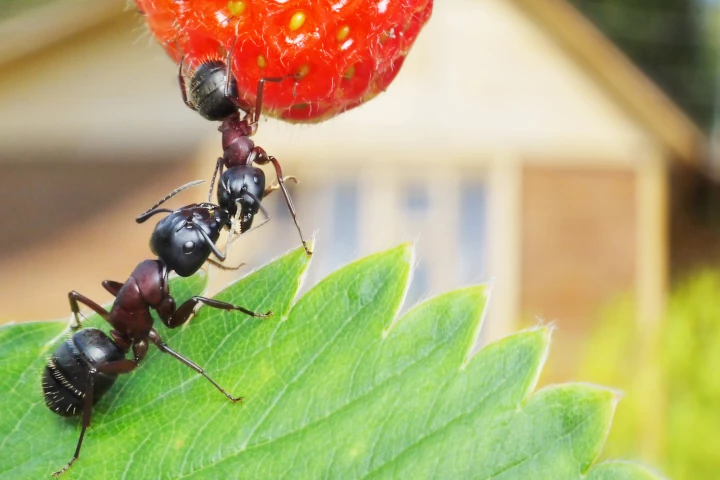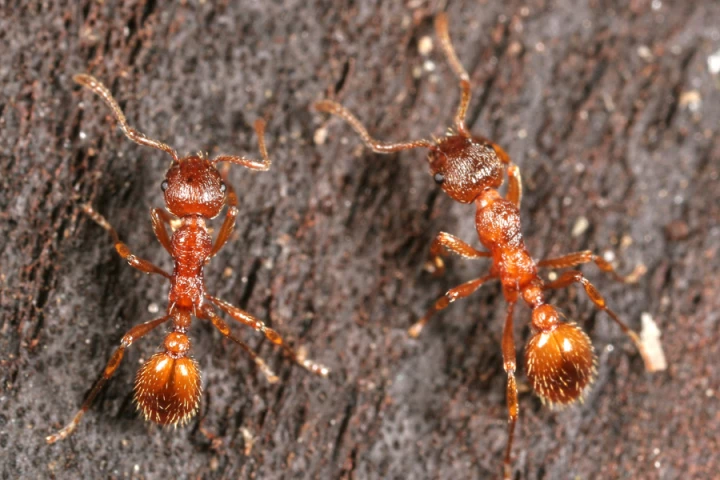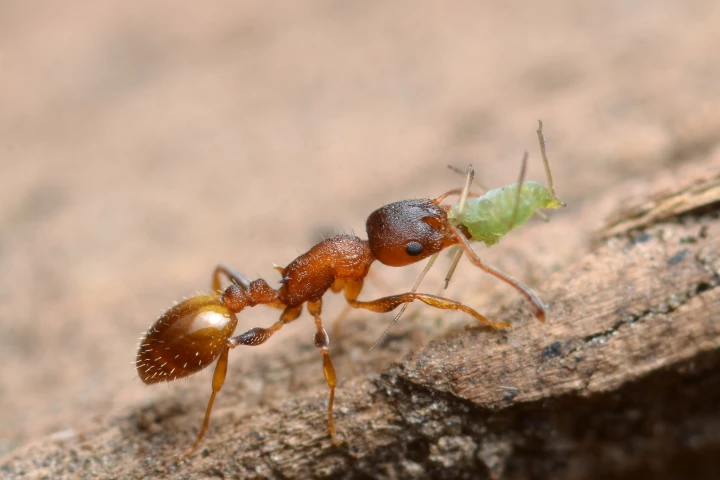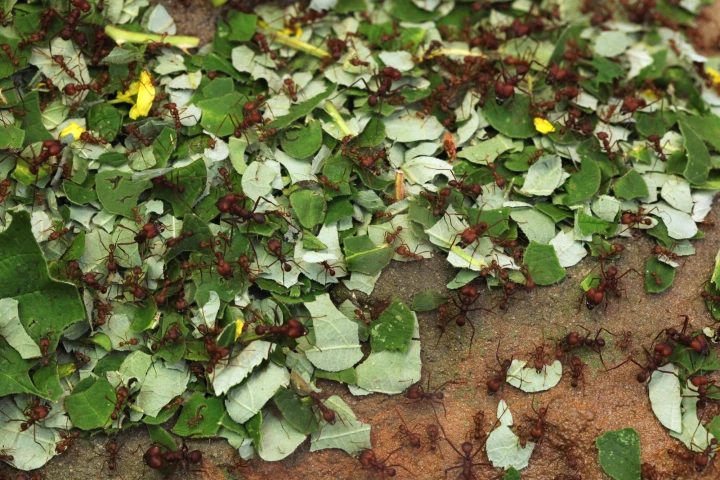Ants
-
Zombies are real – not in the walking dead sense, but parasites that can force creatures to do things against their will. The launch of The Last of Us season 2 feels like a great time to explore some of the real-world zombie stories that inspired it.
-
It has been known for some time now that chemicals produced by certain ants have antibiotic properties. For the first time, however, one species of ant has been observed actually using those chemicals to treat infected wounds on others of its kind.
-
Playing dead is a common defense mechanism in the animal kingdom, but scientists in Australia have discovered an example on a whole new scale. Entire colonies of ants were found to be feigning death, in a collective behavior never before recorded.
-
Ants can be found in huge numbers in almost all of the world’s regions and habitats. But how did they become the most populous, highly diverse insect species on the planet? Scientists may have an answer, and it has to do with plants.
-
One ant is not very smart, but together they can achieve some remarkable things. Inspired by this emergent cooperative behavior, Harvard researchers have built robots that can work together to escape from a “prison,” without needing a specific plan.
-
The next time an inquisitive four-year-old asks how many ants there are on Earth, you can be ready to fire back a specific number. Researchers in Germany now have an answer to that question, as well as a follow-up: how much do they all weigh combined?
-
One of nature’s most intriguing horror stories is that of the fungus that “zombifies” ants to spread its spores. Now, researchers have discovered the oldest known example of this kind of parasite at work, preserved in ancient amber.
-
Although spiders do help us by eating pests such as mosquitos, many people still aren't wild about having the things in their homes. Such folks may be interested in new research which suggests that ant chemicals could be used to harmlessly keep spiders away.
-
The first thing many of us might wish for is eternal youth, but there’s always a catch. Now, scientists have discovered a version of this story playing out in ant nests, as parasites drastically extend the lifespan of worker ants – at a terrible cost.
-
Scientists have discovered a fascinating new example of impressive teamwork among army ants, in which the insects join their bodies together to form scaffolds that stop nest mates from tumbling down steep terrain.
-
It's a quandary – leafcutter ants cause a great deal of damage to crops, but applying pesticides to those crops harms the environment. Scientists have developed a possible solution, in the form of a high-tech material that uses an odor to trap ants.
-
Ordinarily, when we hear about robots or other devices that are able to independently navigate outdoors, it's a given that they use GPS. French scientists have developed an alternative, however, in the form of a six-legged robot that navigates like an ant.
Load More











